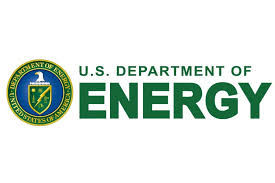Harvard Under Federal Spotlight: What the Patent Investigation Means for Your Bayh‑Dole Compliance
- Oct 21, 2025
- 2 min read

Introduction
A recent federal investigation into Harvard University’s federally funded inventions has sparked alarm across research institutions. The United States Department of Commerce (DOC) has launched a sweeping review of Harvard’s patent disclosures under the Bayh‑Dole Act, raising red flags that could affect any entity dealing with federally funded R&D.
For SBIR/STTR awardees, tech‑transfer offices, and IP‑focused law firms, this case isn’t just news—it’s a cautionary tale underscoring the importance of timely invention disclosure, patent title election, and compliance with iEdison reporting requirements.
What Happened at Harvard?
The DOC sent a formal letter to Harvard President Alan M. Garber demanding a full list of patents derived from federal funding, disclosure dates, licensing terms, and current use—by September 5.
The letter accused Harvard of failing to disclose inventions promptly, failing to ensure manufacturing in the U.S., and not maximizing public benefit—key obligations under Bayh‑Dole.
If the university fails to meet its obligations, the government could invoke march‑in rights, seize ownership of patents, or grant licenses to third parties.
Although Harvard holds tens of thousands of patents (58,000+ as of July 2024) and hundreds of licenses, the review signals the federal government’s growing readiness to enforce stricter compliance.
Why This Should Matter to You
Compliance Risk Isn’t Just For Big Universities
Whether you’re a small business awardee or a university tech‑transfer office, the same rules apply: disclose inventions promptly, file title election, report via iEdison, and ensure obligations like U.S. manufacturing and public benefit are met.
Missing Deadlines = Losing Rights
In Harvard’s case, delayed disclosures and unclear licensing practices triggered scrutiny. For you, missing a deadline or mixing up records in iEdison could mean the government gains title to your invention—no longer “your” patent.
Federal Agencies Are Watching
The DOC’s investigation underscores that federal agencies are willing to ask tough questions and hold institutions accountable. If you receive a letter or notice, it’s not a routine formality—it’s a compliance signal.
Key Takeaways for Your Bayh-Dole Compliance Strategy
Timely invention disclosures + iEdison entries: Make sure your disclosures meet your institution’s internal deadlines and are reflected accurately in iEdison.
Title election within required timeframe: Don’t delay. If you do, you risk having to convey title to the government or request an extension with substantive justification (as noted in the Harvard case).
Maintain accurate licensing & utilization records: Agencies will examine whether inventions are being commercialized and used in the U.S.—two obligations under Bayh‑Dole.
Be audit‑ready: If the government asks for a full list of inventions, funding sources, licensing terms, and use, you should have that data available immediately.
Have a trusted compliance partner: If you’re unsure or behind, working with experts who understand Bayh‑Dole and iEdison can safeguard your patents, funding, and reputation.
What You Can Do Now
Download our Bayh‑Dole Compliance Self‑Audit Checklist to assess your current status.
Received a letter or feel uncertain about your position, schedule a free compliance review to evaluate risks and plan corrective steps.
Conclusion
Harvard’s investigation sends a clear message: compliance matters. Whether you’re a national lab, SBIR awardee, or academic research office, the fundamentals remain the same. Get ahead of deadline risks, maintain transparent records, and treat your inventions as the valuable assets they are—because the federal government is watching.



